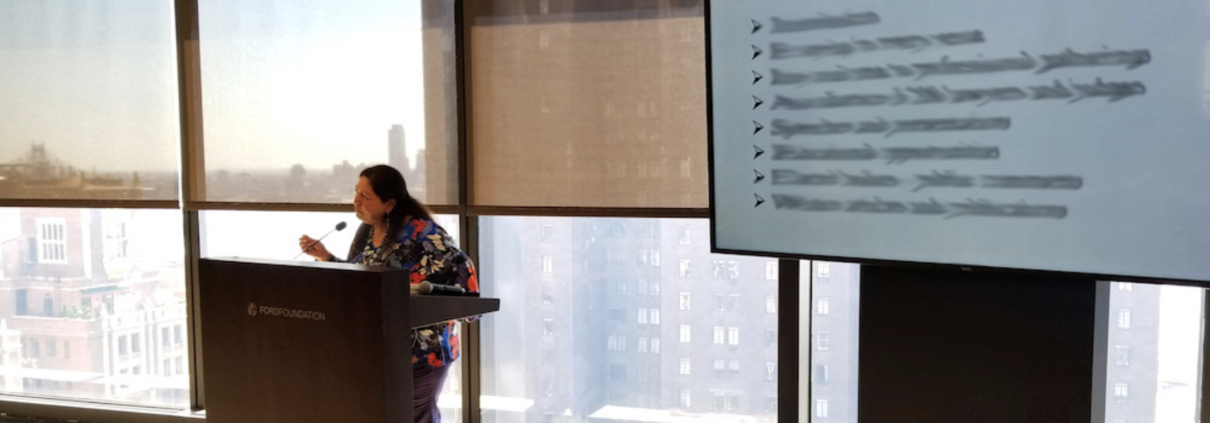WITNESS
During the 18th session of the United Nations Permanent Forum on Indigenous Issues (UNPFII), The Seventh Generation Fund in collaboration with WITNESS hosted our workshop entitled “Indigenous Voices: Alternative and Effective Strategies to deal with Human Rights Violations”; the third of this kind of collaborative training hosted by our two organizations since 2017.
Leading the training were Jackie Zammuto, and Palika Makam from WITNESS along with Australian Aboriginal attorney, Sandra Creamer. In attendance whereabout a dozen community organizers and activists from all across the Indigenous World, spanning from the Masaai in Kenya to Indigenous Peoples of Micronesia.
The emphasis of the training was on preparing frontline Indigenous activists with the proper education and new creative strategies to document human rights abuses in real time. These strategies included how to use video as evidence to promote and inform people through different social media platforms. The training also showcased the strengths and limitations of video advocacy focusing on effectiveness and the different approaches to take for varying audiences.
WITNESS provided examples and studies on the effectiveness and ineffectiveness of varying advocacy campaign strategies. Security culture and informed consent were important conversation topics given the seriousness of many situations being covered by activist , all calling for varying levels of exposure and in many cases, anonymity when covering such delicate subjects.
Here are some Video Advocacy tips on documenting human rights violations from WITNESS:
- Video Advocacy is about strategically using video to change policies, practices, behaviors and laws. Before you hit “record” it’s important to develop a plan for your video’s Objective, Audience, Message, Story and Distribution.
- When filming for evidentiary purposes, make sure that lawyers and investigators can verify the authenticity of your video. A few basic ways to do this are by filming time, date and location indicators, such as landmarks, street signs, a newspaper or cell phone screen showing the date/time.

Global Indigenous Women Caucus capacity training at the Ford Foundation
The Seventh Generation Fund for Indigenous Peoples, in collaboration with the Global Indigenous Women’s Caucus and other co-sponsors hosted a training workshop at the Ford Foundation. In attendance were Indigenous community organizers from all over the world, ranging from the Americas, Africa, Australia and New Zealand.
The purpose of the training was to help newcomers entering the international arena of advocacy and diplomacy become acquainted with the conventions and protocols of the Permanent Forum process and its associated bodies.
The discussion was lead by Indigenous Peoples veterans of the Permanent Forum process who held extensive community organizing, capacity building, and culturally centered leadership in the international arena. Attendees were able to engage in substantive conversation with presenters regarding strategies, perspectives, and culturally responsive and grounded approaches to community and international concerns.
The use of the Declaration on the Rights of Indigenous Peoples was critical in helping center solution-based approaches to address community and tribal issues and concerns.
For more WITNESS resources:
For the UN Declaration on the Rights of Indigenous Peoples:




